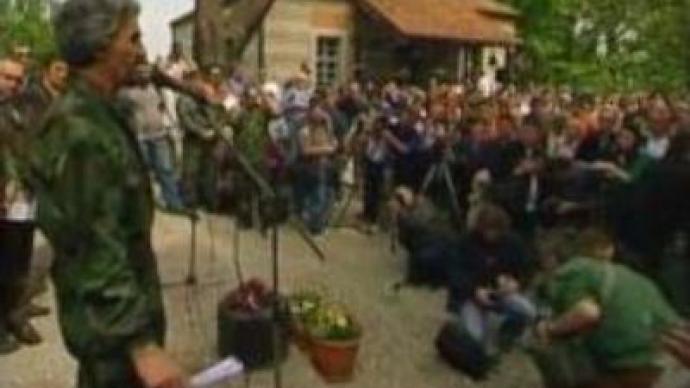Serbs pledge to fight for Kosovo

More than 100 Serbian veterans and nationalists gathered in a town southwest of the Serbian capital Belgrade, pledging to fight for Serbia’s breakaway province of Kosovo.
Police says 27 men, wearing T-shirts with images of former Serbian general and UN war crimes fugitive Radko Mladic, were detained. The volunteers vowed to defend the territory if ethnic Albanians, who now dominate it, win independence.They say their unit will be available to the state authorities in case Serbia decides to fight for Kosovo.The U.N. Security Council is expected this month to consider a Western-backed plan to give the territory supervised independence.A solution to the Kosovo dispute is yet to be found. But for many in Serbia the issue is not only about politics, but about their own lives as well. Especially for those who fled Kosovo during the war.Many say a possible independence of the breakaway Serbian province may cause another reshuffle of borders in the Balkans. If this happens, Bosnia and Herzegovina is likely to be affected next.The country is divided into two parts: the Muslim-Croat federation of Bosnia and Herzegovina and the Serbian national entity – the Republic of Srpska.Last month the Republic of Srpska saw a series of protest rallies – as people were demanding either independence from Bosnia, or becoming part of Serbia.Ethnic tensions remain high in in the country, which suffered a disastrous civil war just 12 years ago.Both the Muslim-Croat federation and the Republic of Srpska have their own government bodies, sometimes even more powerful than the state authorities.At the moment the country is being supervised by the International High Representative for Bosnia and Herzegovina.But his office may be shut down this summer, leaving local politicians in full power.As the political situation is unstable, there is no guarantee the Republic of Srpska would not become the new Kosovo.The future of Bosnia and Herzegovina is unclear. The country with one of the most complicated political systems in the world strongly depends on the international community. And the three sides within the country have their own views on the situation. So until a consensus is reached, Bosnia and Herzegovina will remain divided.
You can share this story on social media:












